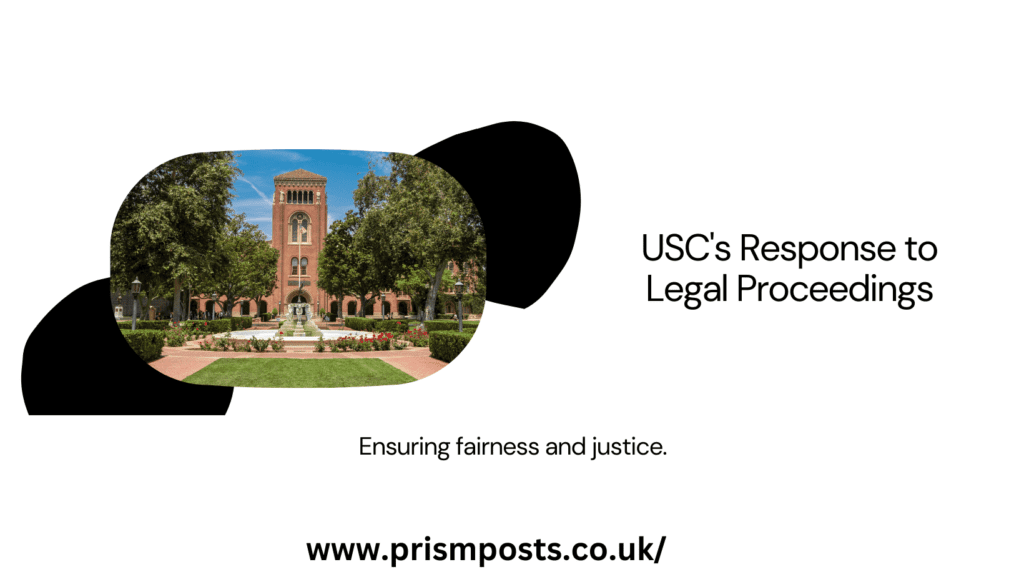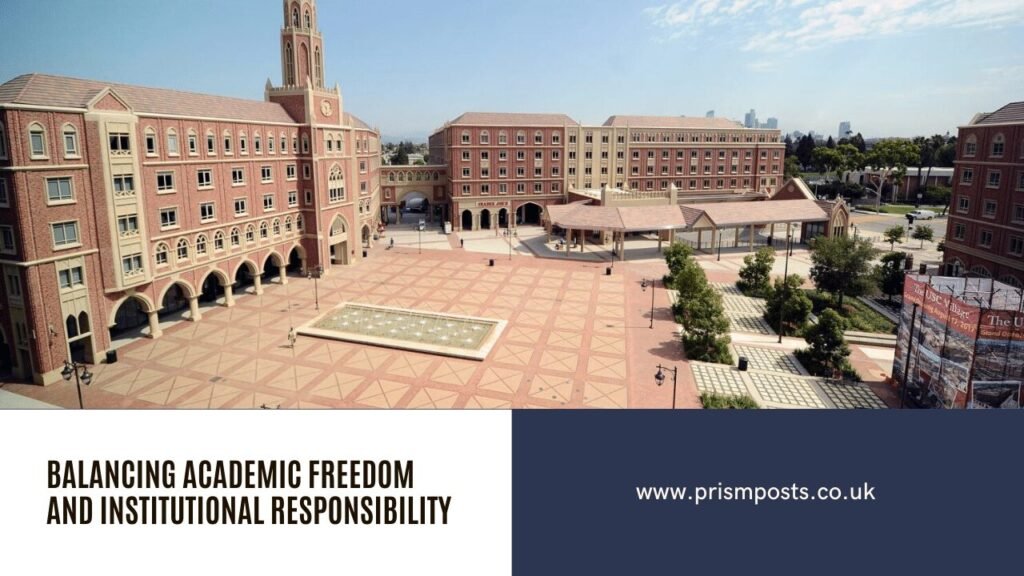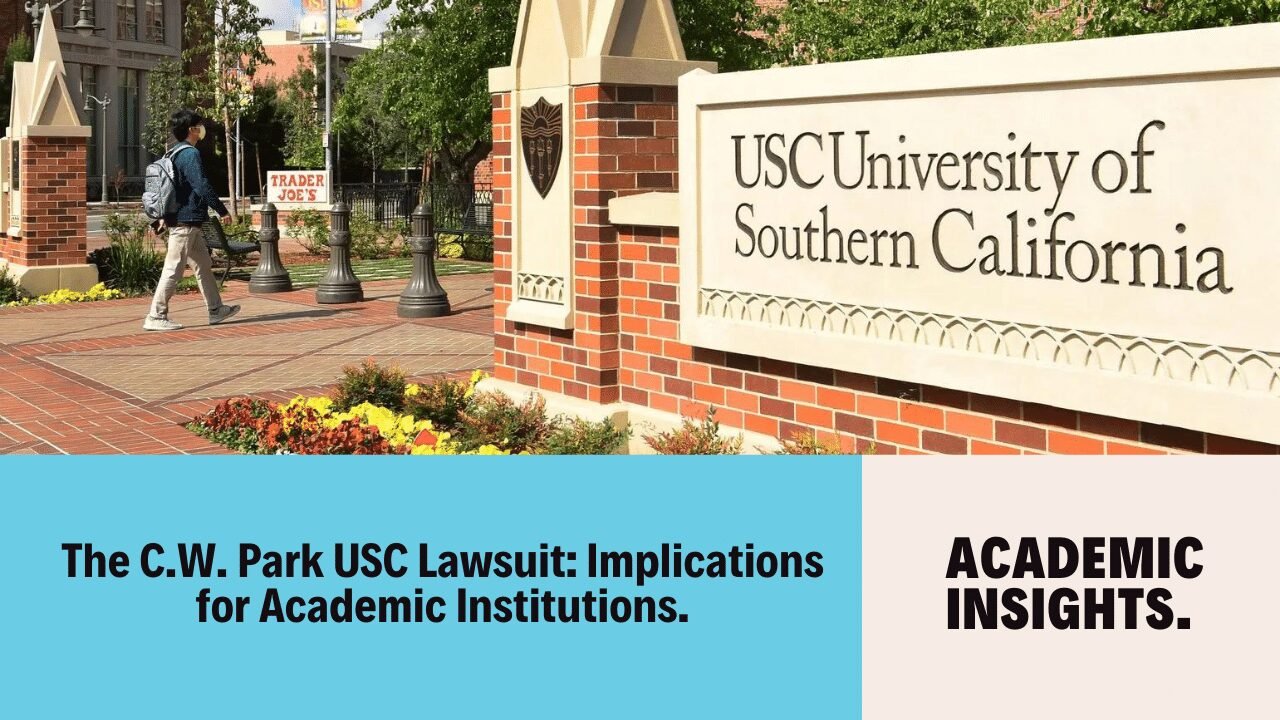The C.W. Park USC lawsuit is a high-profile case that has exposed the dark side of academic misconduct and ethical violations. The lawsuit claims that C.W. Park, a former tenured professor at USC’s Marshall School of Business, and the university itself engaged in fraudulent practices, including falsifying research data and manipulating study results to support their own agendas. The lawsuit also alleges that Park sexually assaulted and harassed several female students, mostly of Korean descent, over the course of several years, and that USC failed to protect the victims and hold Park accountable. The case has sparked outrage and controversy, as well as raised important questions about the role and responsibility of academic institutions in ensuring a safe and respectful environment for their students and faculty. In this article, we will explore the key details of the case, its implications for academic institutions, and its potential to influence the future of academic integrity.
Background of the Case
Former USC School of Social Work professor Christina Woo Park filed the C.W. Park USC lawsuit in September 2023. Dr. Park claims that Dr. C.W. Park, a marketing professor at USC Marshall School of Business, sexually harassed and assaulted her. She also claims that after reporting the incidents, USC treated her unfairly and retaliatorily. Dr. Park is not the only victim of C.W. Park’s alleged misconduct. According to the lawsuit, C.W. Park targeted several female students, mostly of Korean descent, who were enrolled in his courses or research programs. He allegedly offered them academic favors or financial assistance in exchange for sexual favors and threatened to ruin their careers if they refused or reported him. The lawsuit also claims that C.W. Park and USC engaged in fraudulent practices, such as falsifying research data and manipulating study results, to secure grants and publications. The lawsuit names C.W. Park, USC, and several USC officials as defendants, and seeks damages for sexual assault, sexual harassment, discrimination, retaliation, fraud, negligence, and breach of contract.
The Allegations
The lawsuit contains several specific allegations against C.W. Park and USC, which are summarized below:
- Sexual harassment: The lawsuit alleges that C.W. Park repeatedly made unwanted sexual advances and comments towards female students, such as touching, kissing, groping, and asking them to perform sexual acts. He also allegedly sent them sexually explicit messages and photos, and pressured them to send him nude pictures or videos.
- Sexual assault: The lawsuit alleges that C.W. Park sexually assaulted several female students, either by forcing himself on them or by drugging them. He also allegedly filmed some of the assaults and used the videos to blackmail the victims.
- Discrimination: The lawsuit alleges that C.W. Park discriminated against female students, especially those of Korean descent, by giving them lower grades, denying them academic opportunities, or sabotaging their careers if they rejected or reported his sexual advances.
- Retaliation: The lawsuit alleges that C.W. Park retaliated against those who refused or reported his sexual misconduct, by spreading false rumors, threatening to sue them, or filing false complaints against them. He also allegedly enlisted the help of other USC faculty and staff to harass and intimidate the victims.
- Fraud: The lawsuit alleges that C.W. Park and USC engaged in fraudulent practices, such as falsifying research data and manipulating study results, to secure grants and publications. The lawsuit claims that C.W. Park and USC knowingly submitted false or misleading information to various funding agencies and academic journals, and that they failed to disclose conflicts of interest or ethical violations.
USC’s Response and Legal Proceedings

USC has denied the allegations and claimed that it took appropriate actions to investigate and address the complaints. USC stated that it suspended C.W. Park from teaching and research in 2020, and that it initiated a formal review process to terminate his tenure in 2021. USC also stated that it cooperated with law enforcement and external agencies to conduct thorough and impartial investigations, and that it provided support and resources to the victims. However, the lawsuit alleges that USC response was inadequate and delayed, and that it failed to protect the victims and hold C.W. Park accountable. The lawsuit claims that USC ignored or dismissed the complaints for years, and that it allowed C.W. Park to continue his misconduct and retaliation. The lawsuit also claims that USC covered up or minimized the extent of C.W. Park fraudulent practices, and that it did not take any disciplinary actions against him or other USC officials who were involved or complicit.
C.W. Park has also denied the allegations and filed a countersuit for defamation against Dr. Christina Woo Park and several other plaintiffs. He claims that the allegations are false and motivated by personal or professional vendettas, and that they have damaged his reputation and career. He also claims that he has evidence to prove his innocence, and that he is willing to cooperate with any investigations.
The legal analysis of the case is complex and challenging, as it involves multiple parties, claims, and jurisdictions. The case also has significant implications for USC, as it could affect its reputation, accreditation, funding, and enrollment. The case could also set a precedent for how academic institutions handle allegations of misconduct, protect their students, and ensure their integrity.
Also Read: Paul Mackoul, MD Lawsuit: A Critical Examination of Accountability in Healthcare
Implications for Academic Institutions
The C.W. Park USC lawsuit has a broader impact on universities nationwide, as it exposes the vulnerabilities and challenges that academic institutions face in preventing and addressing sexual misconduct and ethical violations. The case highlights the need for robust policies and procedures that can effectively deter, detect, and discipline misconduct, as well as support and protect the victims. Also,The case highlights the importance of fostering a safe and respectful environment for all community members, where they can report misconduct without fear of retaliation or stigma.
The case also provides some insights and lessons learned for higher education institutions, such as:
- The need for clear and consistent definitions and standards of misconduct, and the need to communicate them to all faculty, staff, and students.
- The need for regular and comprehensive training and education on misconduct prevention and reporting, and the need to monitor and evaluate their effectiveness.
- The need for multiple and accessible channels and mechanisms for reporting misconduct, and the need to ensure confidentiality and anonymity for the reporters.
- The need for prompt and thorough investigations of misconduct allegations, and the need to involve external and independent parties to ensure impartiality and transparency.
- The need for fair and proportionate disciplinary actions for those who commit or enable misconduct, and the need to enforce them consistently and publicly.
- The need for adequate and timely support and resources for the victims of misconduct, and the need to protect them from further harm or retaliation.
- The need for regular and honest self-assessment and improvement of misconduct policies and procedures, and the need to solicit feedback and input from all stakeholders.
Academic Freedom versus Institutional Responsibility

The C.W. Park USC lawsuit also raises some questions and tensions about the balance between academic freedom and institutional responsibility. Academic freedom is the principle that grants faculty and students the right to pursue and express their ideas and opinions without interference or censorship from the institution or the state. Academic freedom is essential for the advancement of knowledge and the promotion of critical thinking and innovation. However, academic freedom is not absolute or unlimited, and it comes with certain responsibilities and obligations. Academic freedom does not justify or excuse misconduct or unethical behavior, and it does not exempt faculty and students from the rules and regulations of the institution or the law.
One of the challenges that academic institutions face is how to define and enforce the boundaries and expectations of academic freedom, and how to resolve the conflicts and disputes that may arise from its exercise. This includes the need for clear intellectual property protocols and the promotion of a culture of academic honesty. This also includes the need to protect the rights and interests of all parties involved, such as the faculty, the students, the institution, the funding agencies, and the public.
The Future of Academic Integrity
The C.W. Park USC lawsuit might have a lasting influence on the future of academic integrity, as it could catalyze change in how academic institutions manage allegations of misconduct, protect their students, and ensure their integrity. The case could inspire more victims of misconduct to come forward and seek justice, and more whistleblowers of fraud to expose wrongdoing. The case could also motivate more academic institutions to review and reform their misconduct policies and procedures, and to adopt best practices and standards. The case could also encourage more collaboration and coordination among academic institutions, funding agencies, and law enforcement to prevent and address misconduct, and to hold the perpetrators accountable. The case could also stimulate more research and dialogue on the causes and consequences of misconduct, and the ways to prevent and mitigate them.
FAQs
Q: Who is C.W. Park?
A: C.W. Park is a former tenured professor at USC’s Marshall School of Business, who specialized in marketing and consumer behavior. He is also the defendant in a lawsuit that accuses him of sexual assault, sexual harassment, discrimination, retaliation, and fraud.
Q: What is USC?
A: The University of Southern California, or USC for short, is a private research university with its headquarters in Los Angeles, California. Renowned for its academic brilliance, diversity, and inventiveness, USC is among the most established and esteemed universities in the United States.
Q: What is the status of the lawsuit?
A: The lawsuit is still ongoing, and the outcome is uncertain. The lawsuit was filed in September 2023, and it is expected to go to trial in late 2024 or early 2025. Both parties have denied the allegations and filed countersuits, and they are currently engaged in discovery and pre-trial motions .
Conclusion
The C.W. Park USC lawsuit is a significant and complex case that has revealed the dark side of academic misconduct and ethical violations. The case has also raised important questions and challenges for academic institutions, as well as provided some insights and lessons learned. The case has also the potential to influence the future of academic integrity, and to spark change in how academic institutions handle allegations of misconduct, protect their students, and ensure their integrity. The case is still ongoing, and the outcome is uncertain. However, the case has already generated a lot of attention and controversy, and it will likely have a lasting impact on the academic community and beyond.

